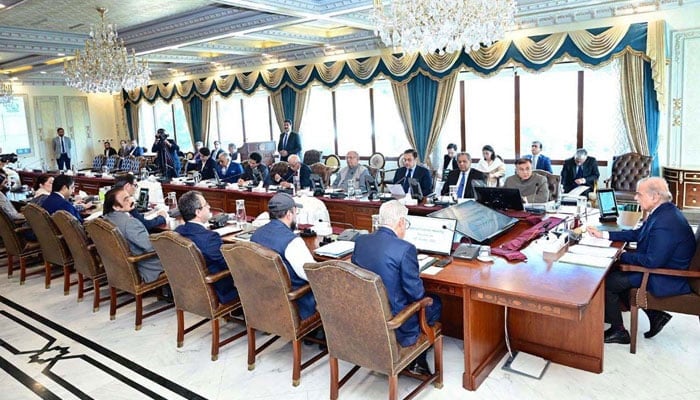ISLAMABAD: The government is considering the establishment of a National Crypto Council to develop regulatory frameworks for digital currencies while ensuring financial stability and security, the Ministry of Finance announced on Tuesday.
The decision was discussed in a high-level meeting on digital assets, chaired by Finance Minister Senator Muhammad Aurangzeb. The meeting was attended by foreign delegates, including U.S. President Donald Trump’s advisors on digital assets, as well as Minister of State for IT & Telecom Shaza Fatima Khawaja, the State Bank governor, and finance and IT secretaries.
Key Discussion Points
- The global adoption of cryptocurrency and regulatory measures aligned with U.S. policies.
- Financial security, risk mitigation, and the impact of digital assets on Pakistan’s economy.
- The government’s commitment to blockchain technology as part of financial modernization.
- Tokenization of infrastructure and state-owned enterprises (SOEs) to enhance liquidity and investor participation.
Finance Minister’s Directives
Senator Aurangzeb stressed the need for a well-regulated framework in line with Financial Action Task Force (FATF) guidelines. He directed stakeholders to formulate a comprehensive regulatory structure ensuring:
✔ Security and transparency
✔ Compliance with international laws
✔ Protection against financial crimes
He emphasized a balanced approach that encourages investment and innovation in digital assets while maintaining strict regulatory oversight.
National Crypto Council Proposal
The National Crypto Council would function as an advisory body comprising:
- Government representatives
- Regulatory authorities
- Industry experts
Its role would be to oversee policy development, address regulatory challenges, and ensure Pakistan’s digital asset market evolves in a secure and sustainable manner. Additionally, it would collaborate with international partners to develop standardized frameworks for cross-border digital economic engagement.
Current Digital Asset Landscape in Pakistan
Pakistan has over 20 million active digital asset users, who face challenges such as high transaction fees and regulatory uncertainty. The Finance Ministry aims to introduce laws and incentives to promote transparency and facilitate digital business growth.
IMF Talks and Economic Challenges
Meanwhile, Pakistan has informed the International Monetary Fund (IMF) that the Panda Bond—originally set for launch this fiscal year—will now be issued in FY 2025-26 due to pending guarantees from ADB and AIIB. The government is seeking $1 billion, with an initial offering of $200-250 million.
Additionally, the IMF review mission will begin talks in Islamabad on March 3, 2025, under the $7 billion Extended Fund Facility (EFF). The Federal Board of Revenue (FBR) is struggling with a tax shortfall of Rs578 billion, raising concerns over meeting IMF tax targets. The government may request adjustments to the macroeconomic framework, considering slowing large-scale manufacturing growth and declining inflation.
The IMF technical mission on climate finance has also urged Pakistan to enhance monitoring and evaluation of Public Sector Development Programs (PSDP) to prevent fund leakages, as over 1,200 development projects require Rs12 trillion for completion.




